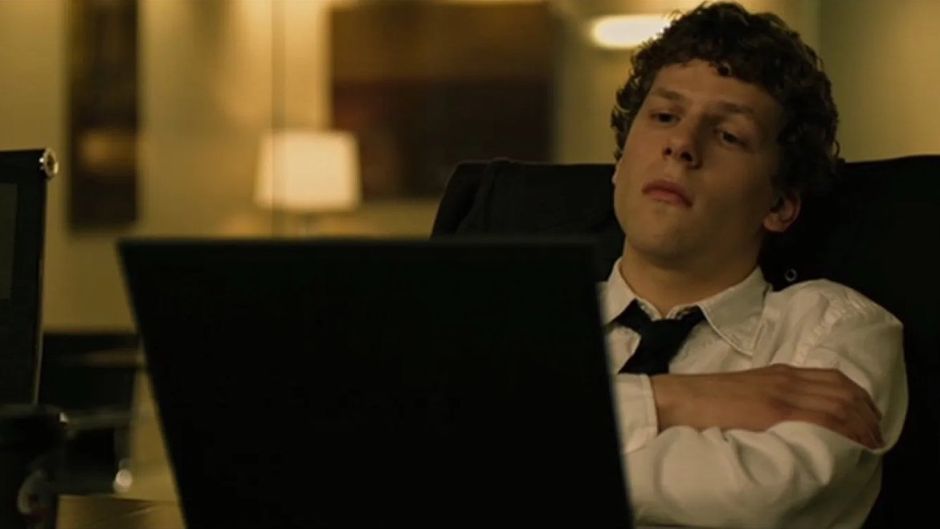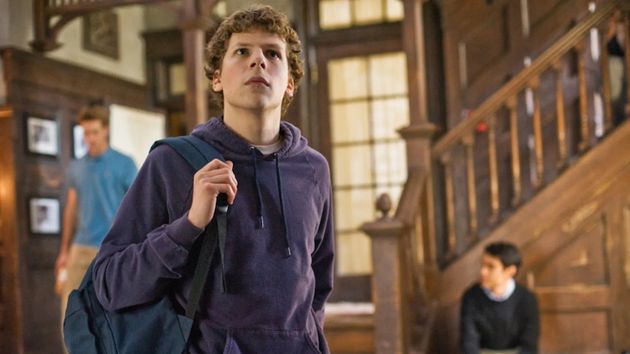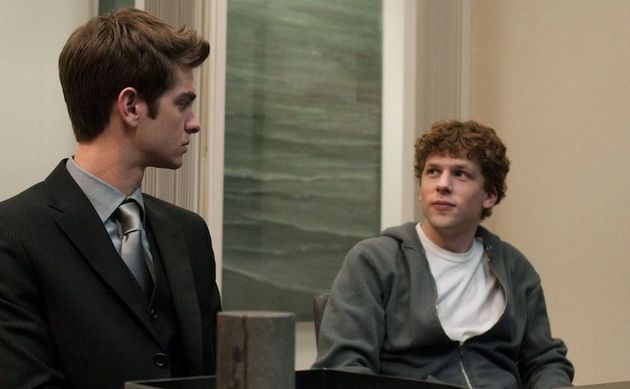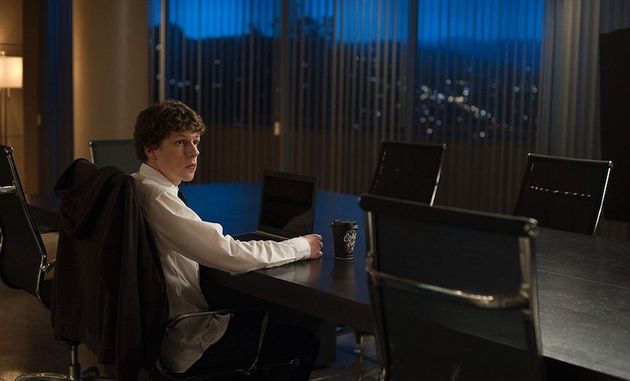David Fincher's film showed us the reality of life in a broken world, where we can neither be known, nor fully forgiven. Only supernatural work will do that.
 This is a story about the impersonality and incommunicability of a medium which, in theory, was supposed to enhance the opposite.
This is a story about the impersonality and incommunicability of a medium which, in theory, was supposed to enhance the opposite.
Twenty years ago this month, Facebook began.
The film The Social Network (2010) is more than a chronicle of its origins. It revolves around a conflict whose violence is verbal. The weapons are words, which are confronted in a meeting room or a cafeteria, as well as in front of the computer or the mobile phone.
In this struggle, David Fincher presents us with one of the most tremendous depictions of the loneliness of contemporary man.
This is a story about the impersonality and incommunicability of a medium which, in theory, was supposed to enhance the opposite.
As observed in the first sentence of the famous Newsweek article, "David Zuckerberg -a hero with whom it is impossible to sympathize- is not at the dark heart of The Social Network; the dreaded emptiness that plagues us is". An emptiness, however, filled with words.
The screenplay by the acclaimed author of The West Wing of the White House series, Aaron Sorkin, is full of such clever dialogue that, by the end, one has the impression that one has only grasped part of what the film is saying.
The film moves as fast as we read on the internet: too fast.

This speed provokes an evident lack of reflection, which seems to accompany the medium.
It is the speed with which the protagonist, so well embodied by the unmistakable body and gestures of Jesse Eisenberg -another one of those actors who always play themselves- writes in his blog the comments that lead to the break-up with his girlfriend.
When he futilely tries to reconcile with her, the girl observes that "on the internet you don't write with a pencil, you write with ink". For communication is not easier the faster it is, but quite the opposite.
This is a problem even with email, let alone WhatsApp, where the tendency is to reply immediately. The penchant for polemic that many internet commentators have for media such as X -formerly Twitter -seems to them to be a lucid intelligent reaction, when it is nothing more than an arrogant demonstration of bold ignorance, which easily turns into an insult and personal disqualification.
The speed of the rhythm that Fincher imposes on the film does not come, as in so many current cinematic products, from a dizzying camera, but from a complex narrative construction with the appearance of classic filmmaking -as he did in his recreation of the 70s thriller in Zodiac (2007), or his peculiar version of Scott Fitzgerald's story, The Curious Case of Benjamin Button (2008) -.
To do so, he uses such an unusual structure as flashbacks to show something different -as Israel Paredes observes in the magazine Dirigido Por-, "the past as if it were the present".

[photo_footer] The inability of the protagonist of this film to connect with everyone around him shows us the loneliness that comes from pride and ambition.[/photo_footer]
The slogan used to advertise the film says that "you don't make 500 million friends without making a few enemies", but when you see it, what it makes you think of is the Spanish proverb that ironically observes that "with friends like these, you don't need enemies".
When Zuckerberg has to respond to the legal confrontation in which his partner Eduardo Saverin accuses him of having appropriated the Facebook project, he naively says: "But he's my best friend′".
It is common for celebrities to complain that everyone claims to be their friend, when at best they are just acquaintances. The point is that anyone who uses Facebook -I have, although my pages are now run by administrators- is aware that they have more friends added to their profile than in real life.
Yet we try to achieve through the network what we cannot achieve in person, as Zuckerberg does.
Some people think they have made friends online; I have regained some, but I may have lost others as well. The question is: what does friendship mean to us?
It is something that has become so devalued in today's world that we no longer know what a friend is. Clearly, it takes time and energy to have friends.
It is something that requires effort and vulnerability, but it also offers companionship, affection, and intimacy. In true friendship there is trust, loyalty and security, the opposite of what is in this film.
This shattering vision of one of the youngest tycoons on the planet not only gives us a new version of Citizen Kane; here, Orson Welles' Rosebud -converted into Zuckerberg's frustrated relationship with his university girlfriend- presents an existential mystery that reveals the paradoxes of a time of which Facebook is only a symbol.
The emotional disability of those who pull the strings of the new forms of social relations reveals to us that, "behind the biggest machine ever created for making friends", there is nothing more than "a cosmic solitude" -as Jordi Costa says in the summary of that year in the newspaper El País-.
After this long parenthesis between the prologue that begins the film and the final scene that brings us back to the beginning, there is only the echo of "man's immortal thirst to be known and completely forgiven" (Henry Van Dyke).
The inability of the protagonist of this film to connect with all those around him shows us the loneliness that comes from pride and ambition. His alienation reveals the sad fate of Adam's children in a culture of Babel, where technological success cannot hide the fact that east of Eden we live in a world where we are "strangers and aliens" (Ephesians 2:19).

[photo_footer] The reality is that walls like those on Facebook sometimes do not bring us closer but separate us from others..[/photo_footer]
The reality is that walls like those on Facebook sometimes don't bring us closer but separate us from others. Our inability to connect with those around us is not solved by spending hours in front of a computer screen.
The isolation in which we live has nothing to do with the geographical location of our residence, but with our inability to communicate and show the reality of our lives to those who are closest to us.
The wall is therefore often more a form of protection than of closeness. Opening up to others is painful and makes us extremely vulnerable.
David Fincher's film shows us the reality of life in a broken world, where we can neither be known, nor fully forgiven, as Van Dyke says.
This requires supernatural work. Reconciliation is only possible by accepting the truth that Jesus announces to us: we are far from God (Eph. 2:13). And that is the source of all our problems.
The Gospel that Christ brings us, however, is that He Himself is the one who draws us near and gives us peace. He breaks down the barrier that separates us from God and others (v. 14). That has a cost and a price.
The strange thing is that it does not consist in the effort we make, but in the sacrifice of another: Christ Jesus. True friendship is therefore a gift we must receive from the One who knows us and forgives us completely.
José de Segovia, journalist, theologian and evangelical pastor in Madrid.

Las opiniones vertidas por nuestros colaboradores se realizan a nivel personal, pudiendo coincidir o no con la postura de la dirección de Protestante Digital.
Si quieres comentar o